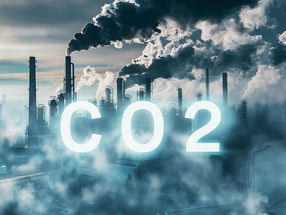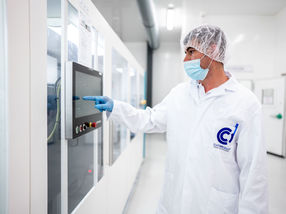Pathways to Deep Decarbonization in Germany
How Germany can decarbonize its energy system and reduce greenhouse gas emissions by more than 80% until 2050
In order to take an important step towards limiting global warming to less than 2 °C compared to pre-industrial times, countries are expected to achieve a new international agreement on the climate at the UN climate conference in Paris at the end of the year. According to climate science, this target can only be obtained if global net greenhouse gas (GHG) emissions approach zero by the second half of the century.
Against this background, the Deep Decarbonization Pathways Project (DDPP), coordinated by the Institute for Sustainable Development and International Relations (IDDRI) and the Sustainable Development Solutions Network (SDSN) set by the United Nations Secretary General, emerged in 2013.
The now published DDPP country study for Germany explores what is required to achieve deep decarbonization in Germany. It has been conducted by the Wuppertal Institute for Climate, Environment and Energy, with the support of Stiftung Mercator. The study discusses how the German government's target of reducing domestic GHG emissions by 80 to 95% by 2050 (versus 1990) can be reached.
Potential pathways to deep decarbonization in Germany have been comparatively analyzed by means of a discussion of GHG mitigation scenarios currently available for Germany. The analysis shows that there are three “key strategies” which strongly contribute to GHG emission reduction in almost every scenario:
- Strong energy efficiency improvements, i.e. reduced energy input but steady output in all end-use sectors (residential, services, industry and transport sector)
- Increased use of domestic renewable energy sources (especially higher electricity production from wind and solar power plants)
- Extensive electrification of processes (e.g. electricity-based heat supply, electric vehicles) and use of renewable electricity-based synthetic gases/fuels (power to gas/fuels) in the medium to long term
Realizing deep decarbonization, however, requires a successful implementation of additional strategies. In order to achieve a GHG reduction of 90% or more by 2050, especially the following can be employed:
- Final energy demand reductions through behavioral changes (modal shift in transport, changes in eating and heating habits etc.)
- Net imports of electricity from renewable sources or import of bioenergy
- Use of carbon capture and storage technology (CCS) to reduce industry sector GHG emissions
- Reduction in non-CO2 emissions, especially in agriculture and industry
A successful implementation of GHG mitigation strategies is linked to significant challenges which need to be overcome jointly by politics and society. As Prof. Dr. Manfred Fischedick, Vice-President of the Wuppertal Institute, puts it: "Deep decarbonization is not possible without adequate political, institutional, cultural and social framework conditions". He underlines that "continuous commitment appears to be feasible only if we stop focussing on potential short-term disadvantages of the transition to a low-carbon energy system. We need to emphasize the fact that the implementation of decarbonization measures is not only beneficial for achieving domestic GHG reduction targets but also leads to significant additional advantages for society in other areas. Not only can such measures stimulate decarbonization efforts in other countries, but positive effects also occur locally, e.g. in the form of better air quality, increased innovation dynamics and export opportunities for companies. This should ultimately provide enough momentum for ambitious and courageous political action in Germany and worldwide".
Most read news
Topics
Organizations
Related link
Other news from the department politics & laws

Get the chemical industry in your inbox
By submitting this form you agree that LUMITOS AG will send you the newsletter(s) selected above by email. Your data will not be passed on to third parties. Your data will be stored and processed in accordance with our data protection regulations. LUMITOS may contact you by email for the purpose of advertising or market and opinion surveys. You can revoke your consent at any time without giving reasons to LUMITOS AG, Ernst-Augustin-Str. 2, 12489 Berlin, Germany or by e-mail at revoke@lumitos.com with effect for the future. In addition, each email contains a link to unsubscribe from the corresponding newsletter.




























































